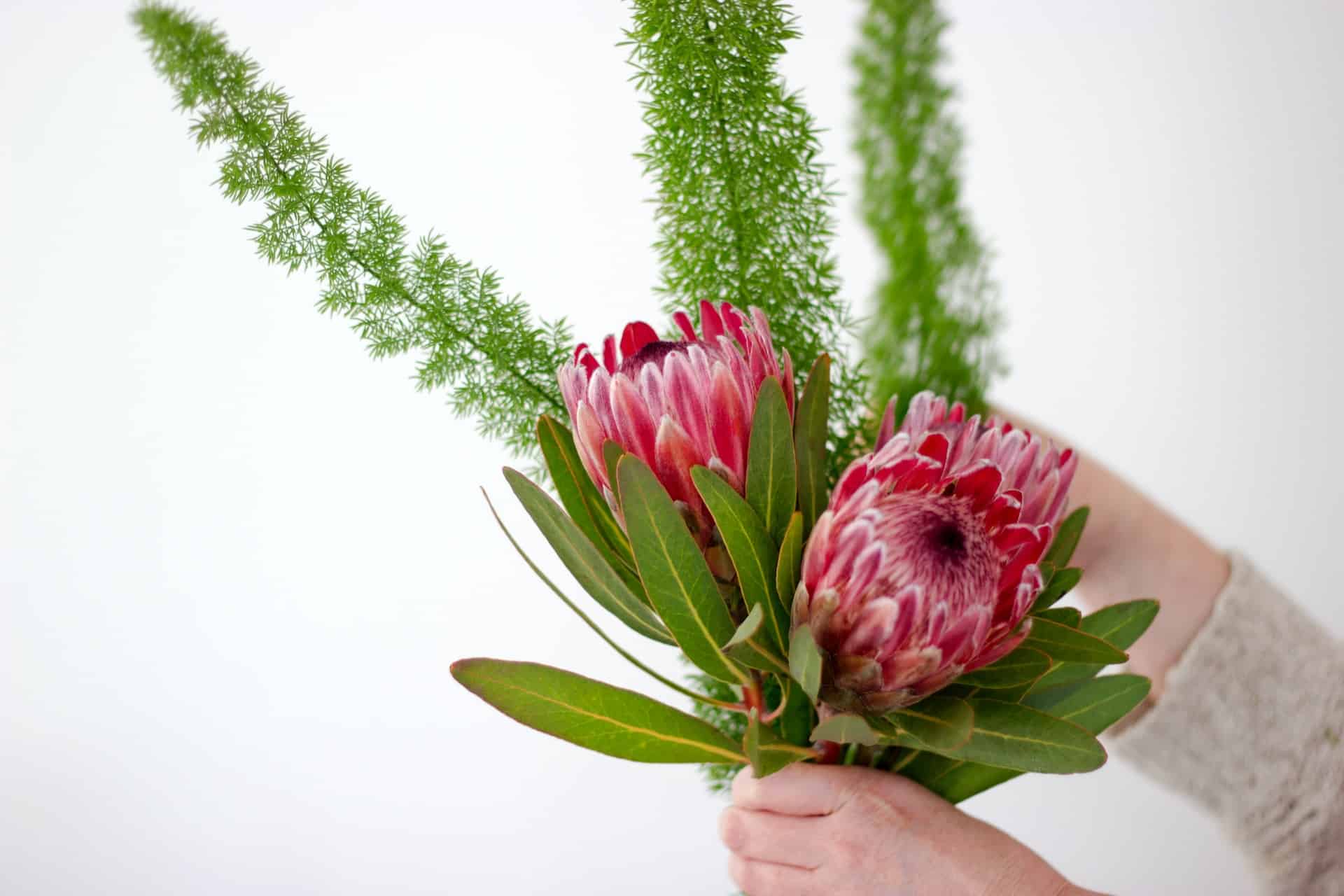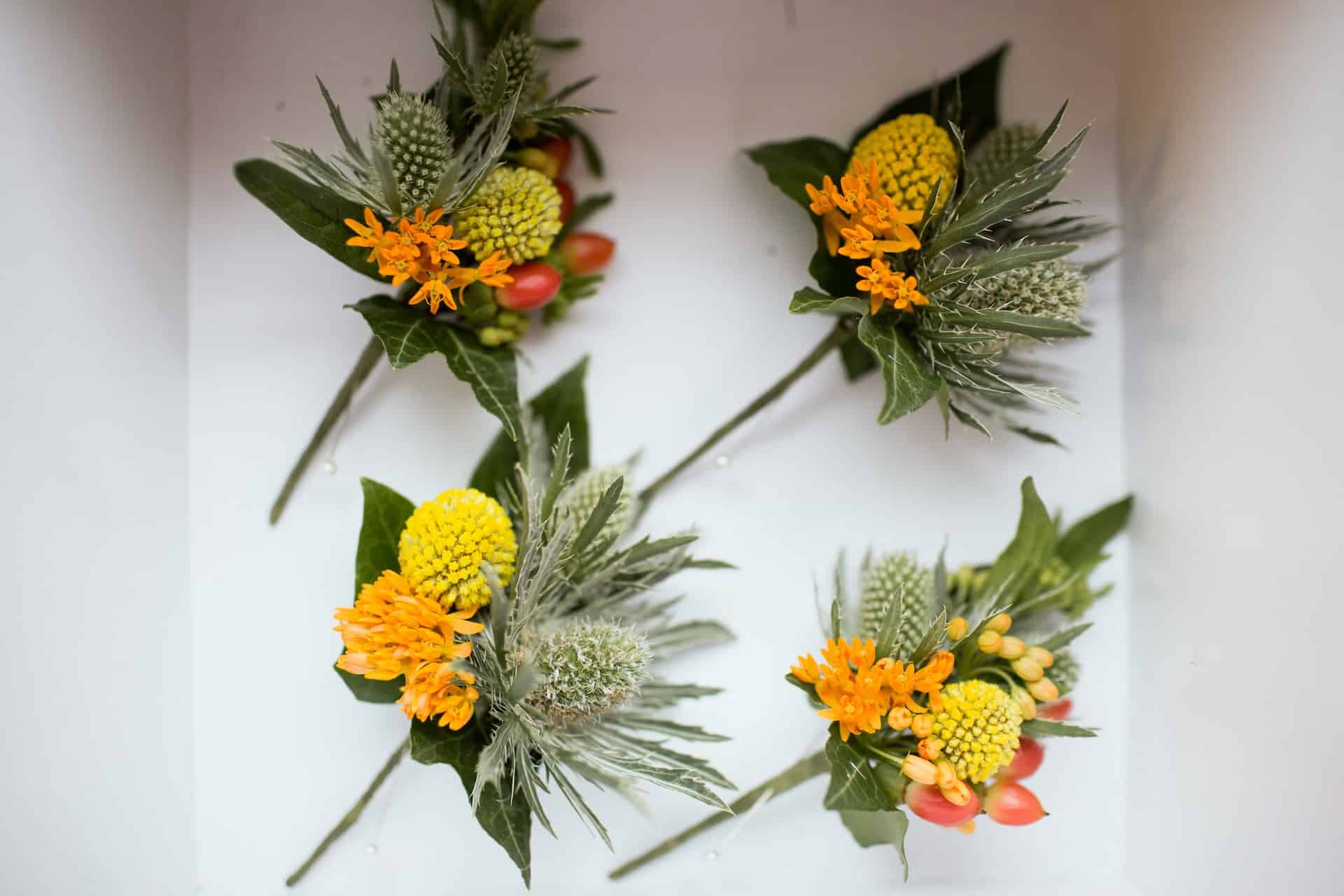Keeping Love in Bloom: Eco-Friendly Wedding Florals for the Conscious Couple

Weddings are moments of joy, sharing and love, but they can also be an opportunity to create a negative ecological impact. Indeed, traditional floral arrangements used at weddings can be responsible for a large amount of waste, pesticides and international transport. Fortunately, today there are sustainable and environmentally friendly alternatives for couples who want to have an eco-friendly wedding.
Local and seasonal flowers
One of the first sustainable alternatives to traditional floral arrangements is to choose local, seasonal flowers. By opting for flowers grown nearby, you considerably reduce the carbon footprint linked to transport. Additionally, seasonal flowers will be fresher and have greater longevity, meaning you can enjoy them for longer. Ask local farmers or florists committed to an eco-responsible approach to find the varieties available in your region.
Dried flowers
Another original and sustainable alternative to traditional floral arrangements is the use of dried flowers. Dried flowers have grown in popularity in recent years, and it’s easy to see why. Not only do they offer a unique, bohemian aesthetic, but they are also more durable. Dried flowers require no water or special care, making them a perfect choice for outdoor weddings or far-flung destinations. You can mix different varieties of dried flowers and combine them with natural elements such as aromatic herbs or foliage to create original bouquets and arrangements.
Potted plants
For those who want to add a touch of greenery to their wedding, potted plants are a great sustainable alternative. Potted plants can be used to decorate tables, the altar or to give as gifts to guests. By choosing plants adapted to your climate and the place where the ceremony will take place, you can then replant them in your garden or offer them to your loved ones so that they continue to grow and flower. Potted plants are not only durable, but they also bring a warm and natural atmosphere to your wedding.
Recycled materials
In addition to flowers, the materials used for traditional floral arrangements can also have a significant ecological impact. For a sustainable alternative, consider using recycled materials for your floral decoration. For example, you can use recycled glass pots, ceramic vases made from recycled clay, or even reused glass bottles as vases. Using recycled materials gives objects a second life and reduces the demand for new resources.
Edible floral art
An increasingly popular alternative in sustainable weddings is the use of edible floral art. Instead of making traditional floral arrangements, opt for arrangements made from edible fruits, vegetables and herbs. You can use seasonal fruits and vegetables to create wreaths, table bouquets or even cake decorations. Not only is this option eco-friendly, but it also adds a touch of color and freshness to your wedding.
Eco-friendly creations for modern weddings
Faced with growing awareness of environmental issues, innovation is entering the world of weddings with ever more eco-responsible creations. For those looking to take the next step in planning a sustainable wedding, it is essential to explore previously unexplored avenues to reduce the environmental impact of this special event. By taking into account not only the choice of flowers but also aspects such as the energy consumed during the ceremony or the materials used for dresses and costumes, we can orchestrate a truly green celebration. Here are some ideas for innovating in organizing an eco-friendly wedding.
An eco-responsible ceremony location
Choosing a venue that promotes eco-responsibility is an innovative way to minimize the environmental impact of your wedding. More and more venues are now offering sustainable options, for example using renewable energy to power the event, or promoting environmentally friendly waste management. Find out about green initiatives at potential venues and prioritize those that align with your vision of an eco-friendly wedding.
Sustainable dresses and suits
Aside from floral arrangements, clothing worn at weddings can also have a significant impact on the environment. For a truly innovative touch, consider dresses and suits created from recycled or organic fabrics. Many designers specialize in designing ethical wedding wear, using sustainable materials without sacrificing elegance and style. This approach not only ensures that clothing is environmentally responsible, but also encourages the fashion industry to adopt more sustainable practices.
Local and seasonal gastronomy
Making the wedding banquet more sustainable is also a key step in reducing the environmental impact of the event. By choosing a caterer who favors local and seasonal products, you will not only be able to offer your guests a delicious meal but also reduce the carbon footprint of your ceremony. The use of local products reduces CO2 emissions linked to transport and promotes the local economy.
Ethical alliances
Finally, remember that even small details, like wedding rings, can be approached with an environmental conscience. Opt for jewelers who use recycled or ethical metals to make their pieces. Additionally, look for responsibly mined gemstones or consider using synthetic gemstones, which offer a brilliant and ethical alternative to traditionally mined gems.

Energy Alternatives for a Green Wedding
At a time when ecological awareness is at its peak, integrating energy alternatives into your wedding planning is an innovative and deeply environmentally friendly approach. Focusing on a drastic reduction in energy consumption during this special day, this section explores new avenues to make your union not only memorable, but also free of ecological guilt. By highlighting energy alternatives, discover unexplored ways to give a green dimension to your marriage.
Solidarity and Renewable Lighting
When creating an eco-responsible wedding, lighting is an element that deserves special attention. Indeed, by opting for energy-efficient light sources, it is possible to significantly reduce the carbon footprint of your ceremony. The options are numerous, ranging from solar lanterns to biodegradable candles, including low-consumption LED garlands. These alternatives not only create a warm and romantic atmosphere, but they are also in harmony with an ecologically responsible approach.
Ecological Transportation
The arrival and departure of guests represents a significant portion of CO2 emissions during a wedding. To remedy this, consider implementing a carpooling system, encouraging your guests to share rides. In an even greener approach, why not offer personalized public transport, such as buses or shuttles powered by renewable energy? This initiative not only makes travel easier, but it also contributes to reducing the carbon impact of marriage.
Eco-responsible Waste Management
Beyond the careful selection of materials and flowers, waste management at the wedding is an often overlooked but crucial aspect in achieving a green wedding. Encourage reuse and recycling by setting up selective sorting stations for waste. Collaborating with service providers who are committed to reducing waste and encouraging the composting of organic materials is also a laudable approach.
Eco-Conscious Activities
Entertainment is an essential part of the wedding festivity. It is entirely possible to steer them in an ecological direction. For example, instead of throwing rice, which can impact local wildlife, opt for biodegradable alternatives, like flower petals or dry leaves. Likewise, for fireworks, which are very polluting, consider light shows based on LED technologies or laser projections which offer a visual wonder without the environmental consequences.
Comments
Leave a comment